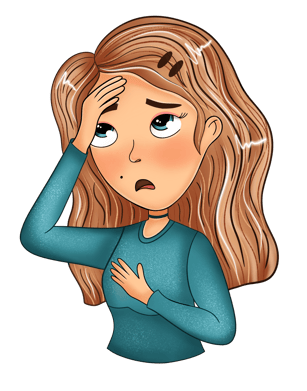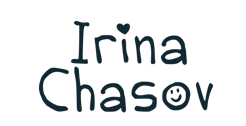Artist Mental Health. Overcome Burnout.
Overcoming Artist Burnout: A Guide to Rekindling Inspiration
ARTIST MENTAL HEALTH
Irina Chasov
5/18/20247 min read


It might be hard to navigate the waters when you are feeling down, so I have prepared some questions for myself. Honestly, they have been a great help!
The key here is to stick to them as a rule, as a discipline and check with yourself regularly, well, daily even if you prefer. Soon, they will be recorded in your head and it will be easier to understand yourself and NOT to neglect your needs.
What are your thoughts on this? I would love to hear what you have liked seeing in this text of mine and what things you really want to implicate into your life?
Artist burnout can manifest in various ways, both physically and emotionally.
To me, it's vital to learn to understand the symptoms because if you can catch this on time, it will be way easier for you to manage it and, perhaps, with time, you will learn to avoid this state, if not all together, but minimize it as much as possible.
Take a look at the symptoms below and see if any of them resonates with how you feel now:
Challenges
Description
Lack of Motivation
Finding it increasingly difficult to feel motivated or inspired to create art, even if it was once a source of joy and passion.
Creative Block
Experiencing a prolonged period of creative block where ideas seem elusive and the creative process feels forced or stagnant.
Physical Exhaustion
Feeling physically drained or fatigued, which can result from long hours spent on artistic projects without adequate rest or self-care.
Emotional Exhaustion
Feeling emotionally depleted, overwhelmed, or detached from the creative process, often accompanied by feelings of frustration or hopelessness.
Increased Irritability
Becoming more easily agitated or irritable, particularly in response to creative challenges or setbacks.
Self-Doubt
Experiencing heightened self-doubt or a lack of confidence in one's artistic abilities, leading to feelings of inadequacy or imposter syndrome.
Loss of Enjoyment
Losing the sense of enjoyment or fulfillment that once came from creating art, resulting in a diminished sense of purpose or satisfaction.
Social Withdrawal
Withdrawing from social interactions or creative collaborations, preferring isolation or solitude over engagement with others.
Physical Symptoms
Experiencing physical symptoms such as headaches, muscle tension, or changes in appetite or sleep patterns, which can be indicative of chronic stress or burnout.
Cynicism or Resentment
Developing a cynical or resentful attitude towards the creative process, clients, or the artistic industry as a whole, leading to feelings of disillusionment or disengagement.
The list seems very extensive and not so pleasant. And I am sure you have felt at least one of the symptoms during your illustration career or artistic journey. I certainly have!!!
I love to analyze things, especially when it concerns my mental health, so I have created a list of questions that helps to get back on the horse in times of despair. And I am gladly sharing it with you here. If you are feeling down, start asking yourself these questions and see if any of them resonate with how you feel. The answers will also be your call to action that should in turn help you feel better or create a plan that will help you STAY better.
It is hard for me, sometimes, to identify what I feel (but I can easily understand how other people feel, so go figure)....
The Questions:
What's causing me to feel this way?
Understanding the root cause of your emotions can help you address them more effectively.
Are there specific triggers or stressors contributing to your current state of mind?
Have you been spending too much in social media?
Can I remember the exact moment when i started feeling this way?
What things make me feel good and I can do them easily at home by myself?
Have I been taking care of myself?
Reflect on whether you've been prioritizing self-care, including adequate rest, nutrition, exercise, and leisure activities. Sometimes, burnout can be a sign that you need to recharge and take better care of yourself.
Did I sleep well today? When was the last time I slept well? How can I prioritize and improve my sleeping routine?
Did I go outside? Do I walk outside? Do I spend time in the sun?
Do I exercise? How good is my physical activity?
Am I putting too much pressure on myself?
Evaluate whether you're setting unrealistic expectations or putting excessive pressure on yourself to perform. It's essential to be kind to yourself and recognize that everyone experiences periods of low motivation or creativity.
When was the last time I set a realistic goal?
When was the last time I evaluated my work and my accomplishments. (Any learning, progress in your work, self-promotion, community engagement is an accomplishment).
Set a timer to do it: 30 minutes Instagram, 30 minutes sketching, 30 min - 1 hour leaning new technique - it's just 1.5 hours but you have already done THREE things for your work. And taking a break is also something on your list - treat it as an investment into your creativity and clear head.
Sitting down and planning things is an accomplishment, reading a book about art is an accomplishment, browsing Pinterest in search for inspiration and reference is an accomplishment. Experiments is an accomplishment, reflecting on your work, slowing down, reevaluating, all these things are no small, they are steps that will help you get where you want to be, they are cards to build your house and, thus, they are all accomplishments.
Scheduling and sticking to schedule is hard. So slow, you want to learn how to do it and feel better, not stress yourself out. If you are stuck scrolling the reels, ALWAYS ask yourself: WHY AM I DOING THIS? Is this FOR me? Is it good FOR me? You might be scrolling reels to interact with the community or looking for an inspiration.
Have 1-2 days off social media. It will still be there when you come back).
What aspects of my work do I enjoy the most?
Reflect on the aspects of your artistic practice that bring you the most joy and fulfillment. Focusing on these aspects can reignite your passion and motivation.
Try to switch your work tasks if possible. If I am tired of characters, I will draw flowers or sketch on the paper (perhaps, one day. I'll become a sketch book person but may be not, and I am fine with it).
Do I need to take a break or change my routine?
Consider whether you would benefit from taking a short break from your work or adjusting your routine to incorporate more variety and balance. Sometimes, stepping away from your art for a while can provide a fresh perspective and renewed energy.
I have a rule - Saturdays are for no work (unless it's something urgent or I am very up for it). Freelancers tent to have no normal hours working and work 24/7 instead without feeling any real accomplishments sometimes. We get lost in this routine and work / break balance is the base for everything.
Am I seeking support from others?
Don't hesitate to reach out to friends, family, or fellow artists for support and encouragement. Sharing your feelings with others can help alleviate feelings of isolation and provide valuable perspective.
I am very bad with that. I am learning. I have been raised a tough kid by life circumstances and tend to think that I am strong and can do all myself. Thankfully, with age, I started realizing that this is a trap and I, myself, love helping people and supporting them. So, perhaps, there is nothing wrong to share more and ask for help?
What are my long-term goals, and how does my current state fit into them?
Reflect on your long-term artistic goals and consider how your current feelings fit into the bigger picture. Reminding yourself of your aspirations can help you stay motivated and focused on the future.
If we just exist and do random things day by day, it will not really lead us to our goals, wants and dreams. Setting goals is also a skill (as drawing) and you can start small. We need goals with EVERYTHIGN: exercise routine, learn to cook, relationships, well, even parenting which IS mostly random for me does have goals.
Probably, even harder than setting goals, can be understanding that goals do not work for us anymore. Its absolutely normal and the path you've walked was not for nothing. That very path lead you to your new goals and that's amazing. Everything changes in life and nature, try to slowly see where the path or goal will lead you.
What small steps can I take to get back on track?
Break down your goals into smaller, more manageable tasks, and identify specific actions you can take to start moving forward again. Celebrate small victories along the way to boost your morale and motivation.
It does seem silly for some people to celebrate but even psychologist recommend doing that, this way, your brain has a clear signal what great things you accomplished (a small thing for some nay be huge for others).
And, lastly, with the world full of so much noise now, try to learn to listen to what YOU really want, not what seems cool on the outside. Try to always love and take good care of yourself because it's you who is doing these things and you deserve all the love. I think self-love is number one thing we need to learn and be less afraid of what others think!
The issue of artist burnout is one that affects many individuals within the creative community.
This type of burnout can manifest itself in various ways, impacting both the physical and emotional well-being of the artist. Recognizing and understanding the symptoms of burnout is vital, as early detection can significantly improve the ability to manage and potentially prevent or minimize its impact in the future. By being attuned to the signs of burnout, artists can take proactive measures to prioritize self-care, seek support, and make adjustments to their work and lifestyle to foster a healthier and more sustainable creative practice.
Taking steps to address burnout not only benefits the individual artist, but can also contribute to the longevity and quality of their artistic endeavors.
Love,
Irina ♥
